Frank vs. Social Media
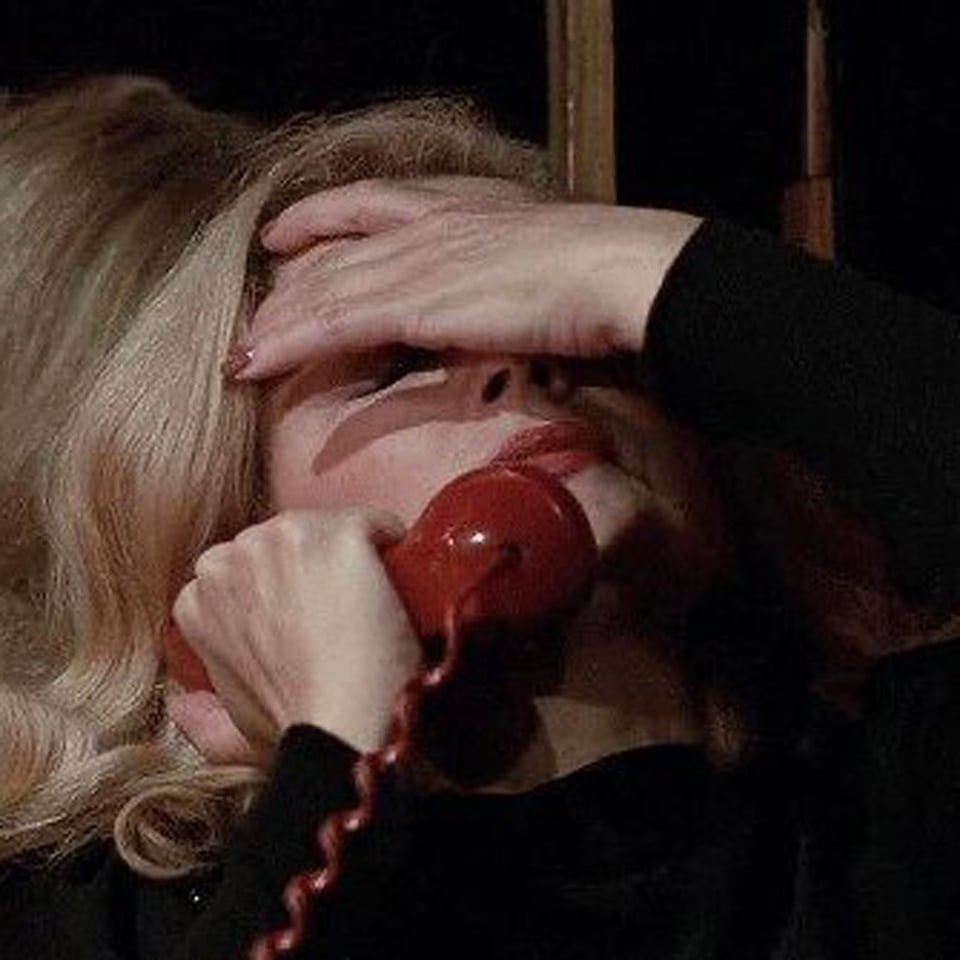
We don’t know about you, but we’re sick of social media.
So we’ve decided to give it up and created a blog—Sounds + Vision—and teathered it to our storefront.
We will be doing essentially what we did on Instagram and Facebook: creating posts—celebrating the trivial or historic—about specific records we offer. And because the blog allows us to do what we want, we’ll share personal essays (written by Frank’s friends) about a song, a grievance, an idea, or merely a fleeting thought.
Hoping you’ll join us as we search for and celebrate all kinds of music without the oversight of our corporate overlords.
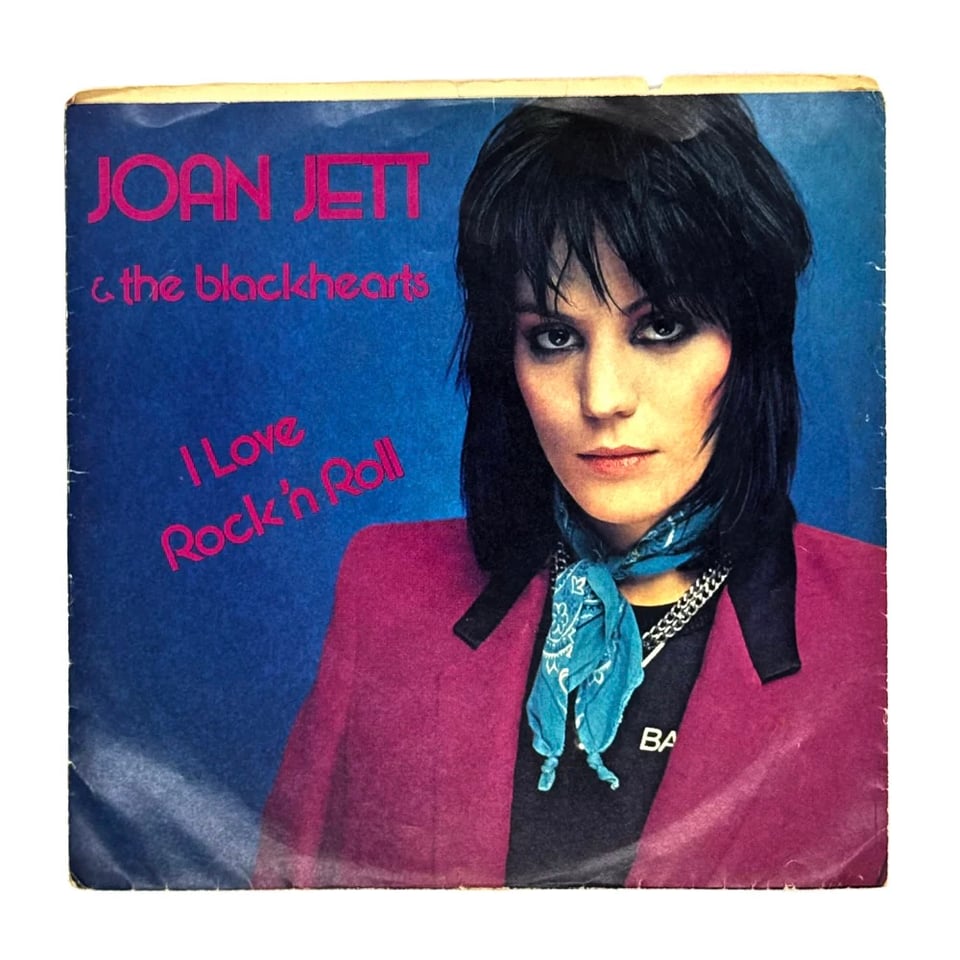
Here’s a taste of an upcoming post (basically, what you can expect moving forward with the blo): Frank looks at how we got from The Arrows to a huge hit for Joan Jett with an assist from Sex Pistols.
I LOVE ROCK ’N ROLL was initially recorded and released by The Arrows in 1975 on Rak Records, featuring Alan Merrill on lead vox and guitar, with Mickie Most as the producer. Alan stated that he wrote the song as "a knee-jerk response to The Rolling Stones' IT'S ONLY ROCK ’N ROLL (BUT I LIKE IT).”
Joan Jett watched The Arrows perform "I LOVE ROCK ’N ROLL" on their weekly UK television series, Arrows, while she was touring England with The Runaways in 1976. The Runaways' producer and manager, Kim Fowley, had the band learn the song the next summer.
After leaving The Runaways, Joan recorded the song in 1979 with two members of the Sex Pistols: Steve Jones and Paul Cook. This initial version was released on vinyl in 1979 under Vertigo Records as a B-side to "YOU DON’T OWN ME."
Two years later, she re-recorded the song, this time with her new band, The Blackhearts. This version was released in late 1981 and became a US Billboard Hot 100 number-one single for seven weeks. Although it was the only Number One single for the band, it was the Number Three song for 1982. The single was certified platinum by the Recording Industry Association of America, representing two million units shipped to stores.
Joan Jett & The Blackheart’s version was inducted into the Grammy Hall of Fame in 2016.
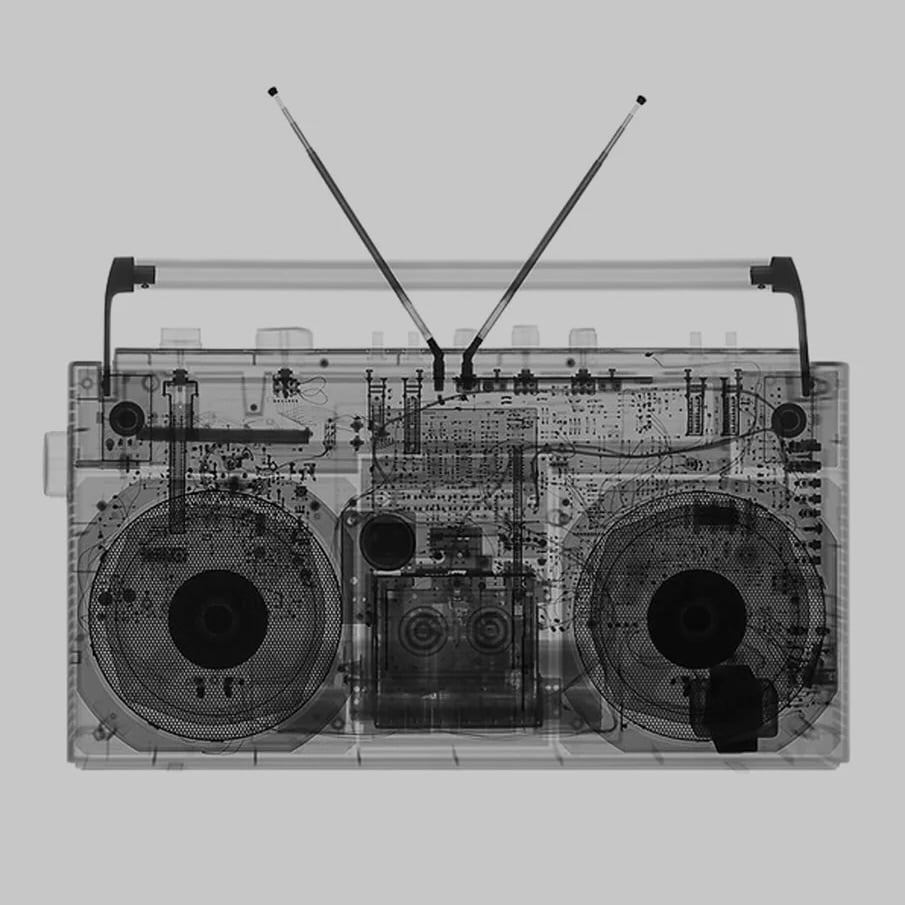
And speaking of personal essays, a few years back, artist Anthony Grant wrote this fantastic remembrance of growing up in the heat of Bronx summers in the late 80s. With the groundhog predicting more wintery grey days, Frank thought he would do us all a favor and share it in the hope that it warms your day just a little bit:
Most days, I played outside until the sun went down. My friends and I would find things to keep ourselves occupied throughout the day. The Bronx in the ‘80s was wonderful, difficult, and, at times, downright dangerous, but somehow, us kids knew how to steer clear of trouble. That’s not to say we didn’t make our own trouble on occasion.
In the summer the streets were always action packed. That smell was definitely coming from the piles of garbage that may or may not get picked up on their scheduled days. That smell was compounded by every car puffing exhaust into the air. The sounds were layered with kids playing, that one lady who yells at everyone and everything, and the older kids always blasting their boombox at the top of the block.
Even though we weren’t “supposed” to be up there—mainly because we were annoying, we would find a way to just hang around. My friends all had older siblings that were up at the top of the block so we had a flimsy excuse to be around. We’d watch them practice their breakin’ routines. The cardboard would be drenched in sweat, the skid marks from shell tops, and sprinkled with tobacco and weed when it would fall out of someone’s pockets.
Us little “muthafuckas” (as we were called) couldn’t breakdance for shit. The muscle bound kid would make us get off the cardboard and give us quarters to go buy Icees. We’d go, but we always found our way back to the top of the block to be annoying.
The music made the summers come to life. My first crushes were Blondie and Sade. White Lines had such an insane baseline. I’d never heard anything like it at the time. It’s one of the first songs that made me understand that songs had deeper meanings beyond the words I could hear. It also had this duality where it was clearly about a popular drug but it was also the soundtrack to a time where young men were dying by the dozens and no one was completely sure why.
Whodini’s FRIENDS was one of my favorites. I’d listen to WBLS and KISS with my finger hovering over the record button. I was making mixtapes before I really knew what I was doing. I tried like hell to learn the words to UTFO’s ROXANNE ROXANNE… I was not successful. Also the Roxanne Wars didn’t help. There were dozens of copycat responses to that hit. Late night, it was still fun to hear them all when Red Alert would drop’em on us.
During those early summers in the 80’s us kids played stick ball, threw ninja stars (which we shouldn’t have had access to), blasted our mixtapes, and did our best to process the workld around us. By ’87, ‘88 and ’89, the music changed and so did our crew.
We all ended up in different middle schools. Our short walk to elementary school as a crew became longer walks on different individual paths. We weren’t out on the block as much because school was more demanding, or at least our parents were making damn sure we did our school work first.
Those last summers were still driven by music. MARRS’ PUMP UP THE VOLUME, Erik B and Rakim’s PAID IN FULL, Biz Markie’s MAKE THE MUSIC WITH YOUR MOUTH, and, of course, the inescapable IT TAKES TWO by Rob Base & DJ EZ Rock made it onto the golden Maxell cassette tapes I’d “acquire” from Mom’s job.
The music was changing. It was more aggressive and more vivid. Us kids were changing too. Some of the kids from the crew go mixed up with drug dealers. Some got pregnant far too early. Some of us moved away unceremoniously—sometimes not even knowing it until the moving trucks showed up.
I was practically raised with Hip Hop, R&B, New Wave, and the early sounds that would later be known, to me, as House. While the 80’s had a bittersweet end, the 90’s had its own twist on those genres that would shape my summers as well. But as Sade says, “It’s never as good as the first time.
Recently Arrived Rarities
In the early ‘70s, The Founders were a family soul group — siblings Cheavoria, FD, and Roy took turns with the vocal duties. They released two singles. Both are fantastic. Both were overlooked at the time of release.
By 1973, the group looked to be standing still, and Cheavoria went solo. And in a big way, changing her name to Bobbi Roberson, she released ten hard-to-find Country singles in seven years. For the period, that makes a lot of sense, Country was sweeping the nation.
Singer-songwriter Tom T. Hall described the music's rising ubiquity, saying, “Country music is the hula hoop of today.”
The country music boom occurred during a tumultuous period for Americans. After decades of prosperity — for wealthy and middle-class whites — following World War II, the United States entered a new era of intense social, economic, and political uncertainty. Under the Nixon presidency, Americans were polarized by issues like the Vietnam War, second-wave feminism, affirmative action, our dependency on fossil fuels, and busing. At a time of such unease, many Americans began to find refuge in the imaginary and the signifiers of rusticity.
So, if you have a terrific voice, why not join in?
We’re delighted to offer two truly obscure — yet equally delightful — 45s from Bobbie on Bolivia Records. Bolivia was a label based in Brewton, Alabama, about an hour from Pensacola, Florida, where Cheavoria still lives.
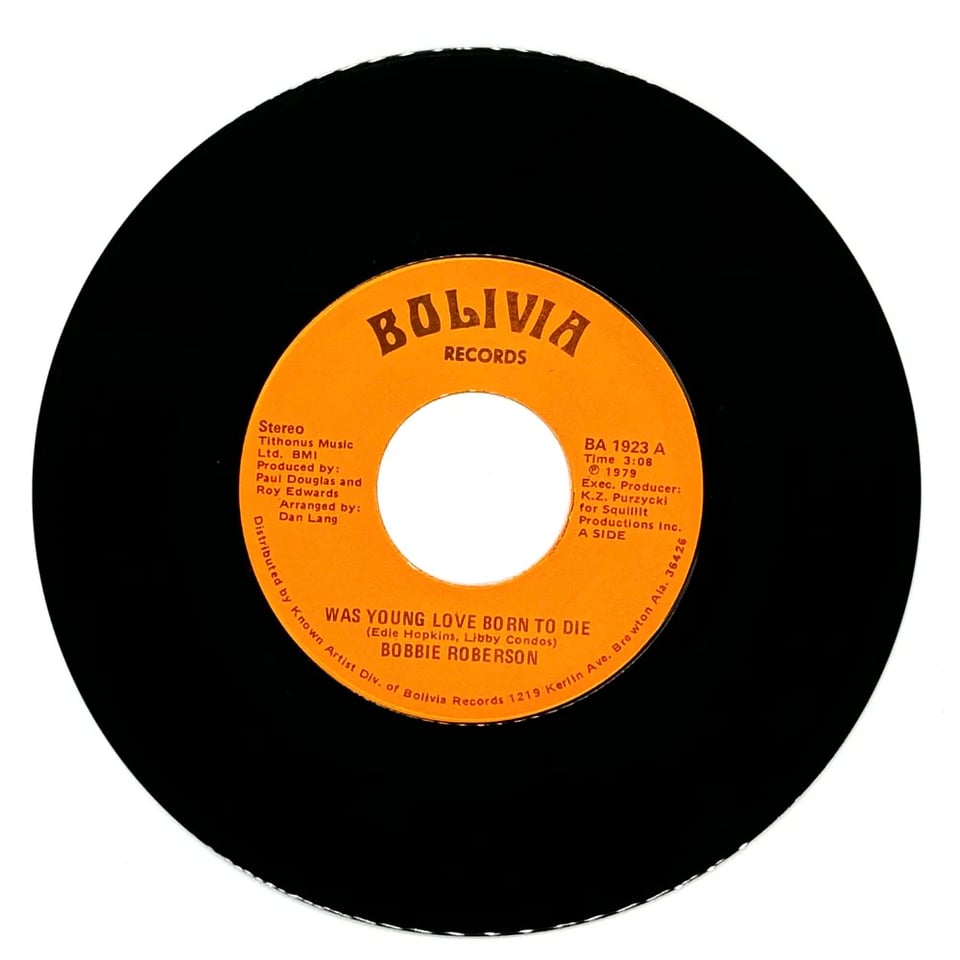
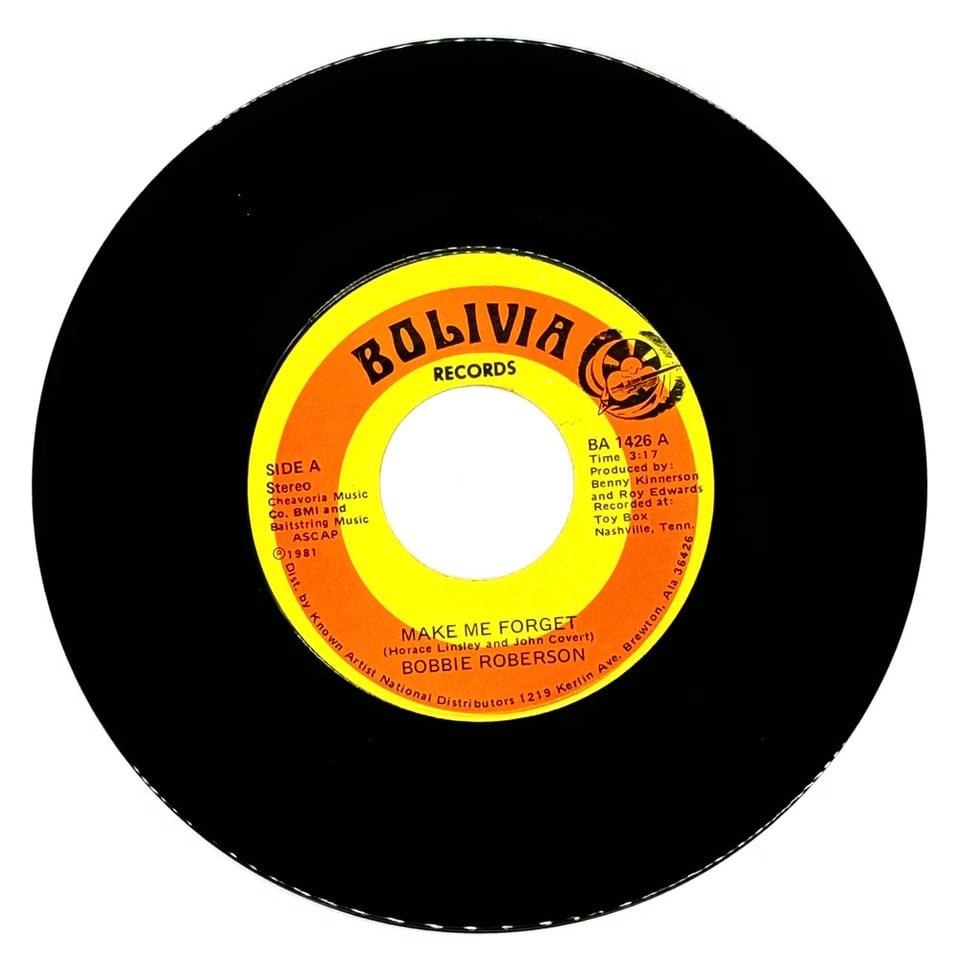
Thanks for stopping by. And like Casey Kasem used to say, “Keep your feet on the ground and keep reaching for the stars."
